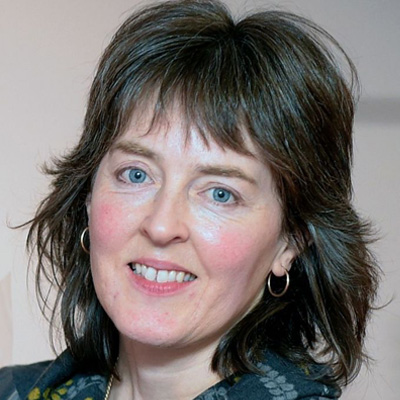Sharing research findings – from the care home to the corridors of power

ENRICHEnabling Research in Care Homes
GUEST BLOG
Sharing research findings – from the care home to the corridors of power
Julie Watson, Edinburgh Centre for Research on the Experience of Dementia at the University of Edinburgh
When a researcher leaves a care home after gathering the information they need, this may be the end of the research for the staff and residents, but it is just the beginning of the next stage of the process for the researcher – analysing and sharing their findings.

When a researcher leaves a care home after gathering the information they need, this may be the end of the research for the staff and residents, but it is just the beginning of the next stage of the process for the researcher – analysing and sharing their findings.
I have had the privilege of working on several research projects in care homes, my most recent being my PhD which aimed to understand how care staff and people with advanced dementia relate to each other. I found three key themes which were important to these relationships: the role and complexity of bodily care; how care staff learn about and support embodied aspects of personhood as they relate face to face with people with dementia; and the important interconnections between the feelings of care staff and the feelings of residents.
Many people have an influence on the quality of care that is provided in care homes, not just those who are face to face with residents. Others include the directors of the care home industry in their boardrooms, the commissioners of care services in local authorities, or those who work in government and make decisions about acceptable levels of staffing in care homes, or the type of training required to work there. In order to make good decisions, these people need to have a clear understanding of what day to day life is really like living and working in a care home. This is why it is important that care homes are open to taking part in research, and why it is vital for researchers to share their findings with all stakeholders. The researcher’s task is to ensure this knowledge gets to the right people and that it attracts their attention.
Since completing my PhD I have written a briefing paper, a journal article (Watson 2016 in press)i, delivered talks at conferences, and taken part in a Festival of Social Science event where I presented some of my work. I worked with an illustrator who drew the picture below which aims to capture the important way that care staff and residents in care homes often connect ‘beyond words – the language of body and soul’, from which we can all learn. This variety of ways of communicating research findings is an attempt to make them available and accessible to a range a people.
As a care home researcher, I hope that my research can make a difference to people who live and work in care homes, and reach everyone who needs to know about it, from the care home to the corridors of power.
i Watson (2016) Developing the Senses Framework to support relationship-centred care for people with advanced dementia until the end of life in care homes Dementia (in press)
Illustration by Karin Georgiana Eremia
